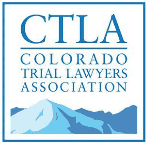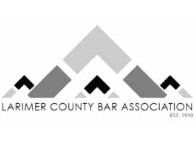Request a Free Consultation | No Upfront FeesSe Habla Español
970-225-2190 |
1-800-664-3151
Wrongful Death Claim FAQs
Losing someone you love is hard. Losing someone you love because of someone else’s misconduct or negligence can be even harder. Below are some of the most frequently asked questions about wrongful death claims to help you begin to navigate this difficult situation.
#1 What is a Wrongful Death Claim?
Colorado law provides compensation for family members of anyone whose death was the result of “a wrongful act, neglect, or default of another.” Some examples of situations that may justify a wrongful death claim include:
- Death caused by a drunk, reckless, or careless driver
- Death caused by a slip and fall or other hazards on private property
- Death caused by a defective or mis-labeled product
- Death caused by medical malpractice
- Death caused by nursing home negligence or abuse
- Work related deaths
- Death caused by assault, battery, and other crimes
Of course, there is no amount of money that will make up for the loss of your loved one or the grief you are experiencing. The purpose of a wrongful death claim is to protect the interests of family members who, through no fault of their own, are suffering the emotional and financial burden of the loss of their loved one.
#2 Who Can File a Wrongful Death Claim?
Wrongful death cases are dictated by Colorado’s Wrongful Death Act, which can be found in CRS 13-21-201 and 202. This law specifies who can file a wrongful death claim and applies specific time limits to each party’s ability to file a lawsuit. For example, in Colorado, the surviving spouse of the deceased person is the only one who can file a wrongful death claim within the first year after the death. During the second year after the death, both the surviving spouse and any surviving adult children of the deceased can bring a claim. If the deceased person left no surviving spouse or children, then and only then can the parents of the deceased make a claim.
Typically, wrongful death claims in Colorado have a two-year statute of limitations, which means a claim must be brought within two years of the death. If you think you might have a wrongful death claim it is very important to contact an attorney immediately to find out about the statute of limitations in your case.
#3 What Damages Can Be Recovered in a Wrongful Death Claim?
The specific amount of damages that could be awarded in a wrongful death claim depends on the facts of the case. In general, damages in wrongful death claims are usually limited to funeral expenses, loss of future income, and non-economic losses such as loss of love, companionship, care, assistance, protection and affection.
In addition to the wrongful death claim filed by the surviving family members, the representative of the deceased person’s estate may file a claim to recover damages for certain types of losses to the estate. This claim is known as a “survival action” and typically includes any medical bills incurred in the incident prior to the person’s passing.
#4 What If I Don’t Want to go Through All This?
We understand that this is one of the hardest, most stressful times in your life. The benefit of hiring a lawyer for a wrongful death claim is that they handle most of the work for you, which can drastically reduce your stress.
However, if you decide that pursuing a wrongful death claim is going to cause you to suffer too much, our attorney’s can help you pursue an alternative called a “solatium” award. If you pursue this route, you agree to accept a modest flat amount of money, which is the same in every case, regardless of the circumstances. If you decide to accept a solatium award instead of pursuing a wrongful death claim, you only must prove liability and not the extent of your pain, suffering and loss.
#5 What If The Person at Fault Doesn’t Have Insurance?
In many cases, there may be other avenues to pursue compensation for your loss. These may include the person’s employer, your own insurance company, or a third party. In cases like this, it is essential that you retain an experienced personal injury lawyer who knows where to look to find the resources to get your family back on their feet.
#6 What Should I Do Now?
Colorado’s Wrongful Death Act is designed to fairly compensate you for your loss, but it is very complex and contains many potential pitfalls that can be difficult to navigate without the proper knowledge and skills. The insurance company you are up against will try every trick in the book to get out of paying you for your loss. While we can’t bring your loved one back, we can help you get the compensation that you are entitled to. We are experienced in handling wrongful death claims with compassion and sensitivity. We provide the resources and support you need to get through this difficult time and will fight to get the justice you deserve.
As previously mentioned, every case is different and none of the information in this post should be construed as legal advice. The best way to find out if you have a wrongful death case that can be pursued successfully is to call us for a no-cost, no-obligation consultation before its too late.

970-225-2190 | 1-800-664-3151
1403 W. 29th St.,
Loveland, Colorado 80538
Greeley:
3835 W. 10th Street, Unit 100,
Greeley, Colorado 80634|
970-460-2220
Longmont:
2204 18th Ave, Suite 123,
Longmont, Colorado 80501|
720-575-0509
Boulder:
4450 Arapahoe Avenue, Suite 100,
Boulder, Colorado 80303|
303-997-2018
Ft. Collins:
123 North College Ave., Suite 160,
Fort Collins, CO 80524|
970-225-2190
Cheyenne:
109 E. 17th St., Suite #6148,
Cheyenne, WY 82001|
307-227-4051 (By Appointment Only)















